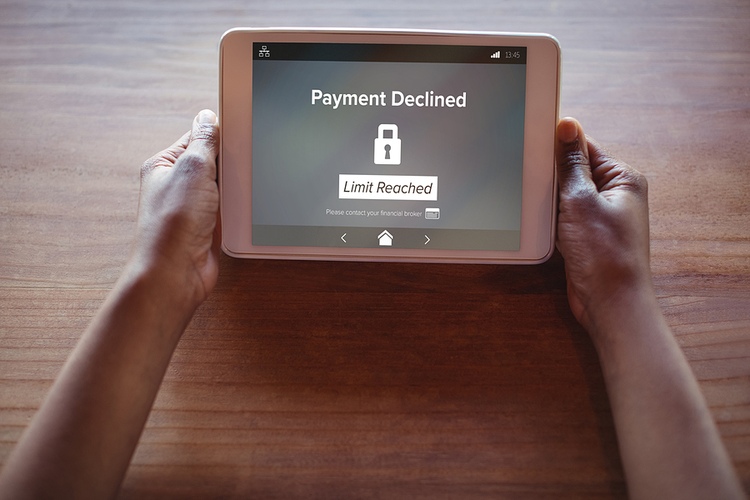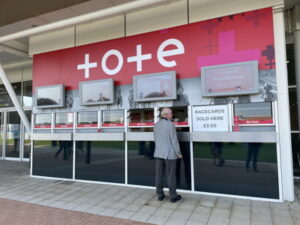
There are many countries around the world in which it is illegal to gamble. There are other countries in which it is illegal to engage in most forms of gambling but not all. It isn’t unheard of, for example, for a country to say that betting on football matches is against the law but taking part in state-run lotteries is fine.
These lotteries are controlled by the government, largely for the purpose of taking money off citizens to fund anything from health care to war. One of the things that happens far less often, but still happens, is a government running bookmakers and casinos.
Whilst it is possible to dress it up in numerous different ways, the truth is that the main reason why governments do this is the same as it is for the likes of state lotteries: for the income. Bookmakers and casinos are set up in such a way that it guarantees a profit to those that do it properly, so governments that run their own are able to see a steady income stream head into the coffers of the government from a public keen to try to win money from them.
There will be some winners, obviously, but most people will lose with the exception of the government in charge.
Governments Always Want Money
 There is a simple fact about governments, which is that they always want as much money as they can get. Whether you’re talking about a government assembled from politicians on the left or the right, they will have their own reasons for wanting to increase the public purse.
There is a simple fact about governments, which is that they always want as much money as they can get. Whether you’re talking about a government assembled from politicians on the left or the right, they will have their own reasons for wanting to increase the public purse.
Whilst governments created out of right-wing parties will want to be able to offer tax breaks to the rich, those on the left will be keen to offer welfare to the most needy. Regardless of the reasoning, the simple fact is that the ruling government will need as much money as it can get for its own reasons. It is exactly why drugs like alcohol and tobacco can still be sold despite the harm they cause as governments tax them to the hilt.
In countries like the United Kingdom, where gambling is legal, the government makes its money by taxing the betting shops and casinos that offer their wares to punters living there. The British government do this courtesy of the Point of Consumption tax, which says that if someone based in the UK is consuming your product then you need to pay tax on it. This is a good way of bringing in money, with billions raised each year by the British government thanks to its gambling tax. The reality is, though, that much more can be made if the government ran the betting instead.
The British government takes money from the profits made by betting and gaming companies. This means that what the government gets is simply a fraction of the money being made by the gambling businesses themselves. Even if a government were to take 50% of a company’s profits, which is far more than is actually taken, it means that they’re missing out on 50% of the profits that they are allowing the company to take home. Some governments choose to take home 100% of the profits, which they do by running the gambling companies themselves.
It Can Be About Control
 There is a sense from many quarters that gambling is an activity in which people often lose control of themselves. The notion that ‘problem gamblers’ are a big issue for governments to have to deal with is often prevalent in those that oppose gambling, when in reality it is a minority amount of people that lose control of their gambling and need to seek help. Even so, it isn’t uncommon for some government’s to want to be able to control what it is that people are doing with their money, with the best form of controlling coming courtesy of the ability to run the betting companies.
There is a sense from many quarters that gambling is an activity in which people often lose control of themselves. The notion that ‘problem gamblers’ are a big issue for governments to have to deal with is often prevalent in those that oppose gambling, when in reality it is a minority amount of people that lose control of their gambling and need to seek help. Even so, it isn’t uncommon for some government’s to want to be able to control what it is that people are doing with their money, with the best form of controlling coming courtesy of the ability to run the betting companies.
When governments have a monopoly on something, it allows them to exert all but total control on it. Imagine a scenario in which the only casinos that you could legally attend were run by the state and you can imagine how quickly it would feel as though the government were completely in control of everything that you bet on.
It would allow them to bar you from entering a casino if it was felt that you didn’t have control of your gambling, for example, or to stop you from placing any more bets if you were winning too much and they didn’t want to lose any more to you.
The problem for many punters is that a lack of choice is not a good thing. There is a reason why cities like Las Vegas exist, with hundreds of casinos existing on the strip and millions of people visiting them every year. Whilst the sense of choice might actually be an illusion, considering the fact that the vast majority of casinos are owned by a select few companies, it does at least provide people wit the feeling that they can choose where to lose their money rather than be faced with only one choice in the form of government-run casinos, especially if they don’t like the ruling government.
There are even some governments, now and in the past, that have allowed gambling through state run operators but only for foreigners, i.e. locals cannot gamble. Here the state is both controlling gambling for its own people, by not allowing them to do it, while also ensuring they can make profit from tourists with money to spend who want to gamble.
The Tote
 A good example of a government-run bookmaker can be found in the form of the Tote. Formed as the Racehorse Betting Control Board as part of the Racecourse Betting Act of 1928, the statutory competition was brought in by Winston Churchill’s government in order to provide a safe alternative to the illegal betting shops that were popping up off the tracks around the country. It was also designed to put some of the money spent by bettors back into the sport of horse racing itself. When the Betting Levy Act became law in 1961, the Board was rebranded as the Horserace Totalisator Board, or the Tote.
A good example of a government-run bookmaker can be found in the form of the Tote. Formed as the Racehorse Betting Control Board as part of the Racecourse Betting Act of 1928, the statutory competition was brought in by Winston Churchill’s government in order to provide a safe alternative to the illegal betting shops that were popping up off the tracks around the country. It was also designed to put some of the money spent by bettors back into the sport of horse racing itself. When the Betting Levy Act became law in 1961, the Board was rebranded as the Horserace Totalisator Board, or the Tote.
After being part of the government’s own network for decades, a decision was taken in 2008 to sell the Tote on the open market. This was largely because of the desire to bring in an injection of cash to the government, rather than a consistent stream of it. In June of 2011, it was confirmed that Betfred had won the bid, meaning that one of the world’s first government run bookmakers was officially being handed over to the private sector. In the eyes of many it has been a failure in the years that have followed, suggesting that the government’s short-term view was not for the best of the country.
